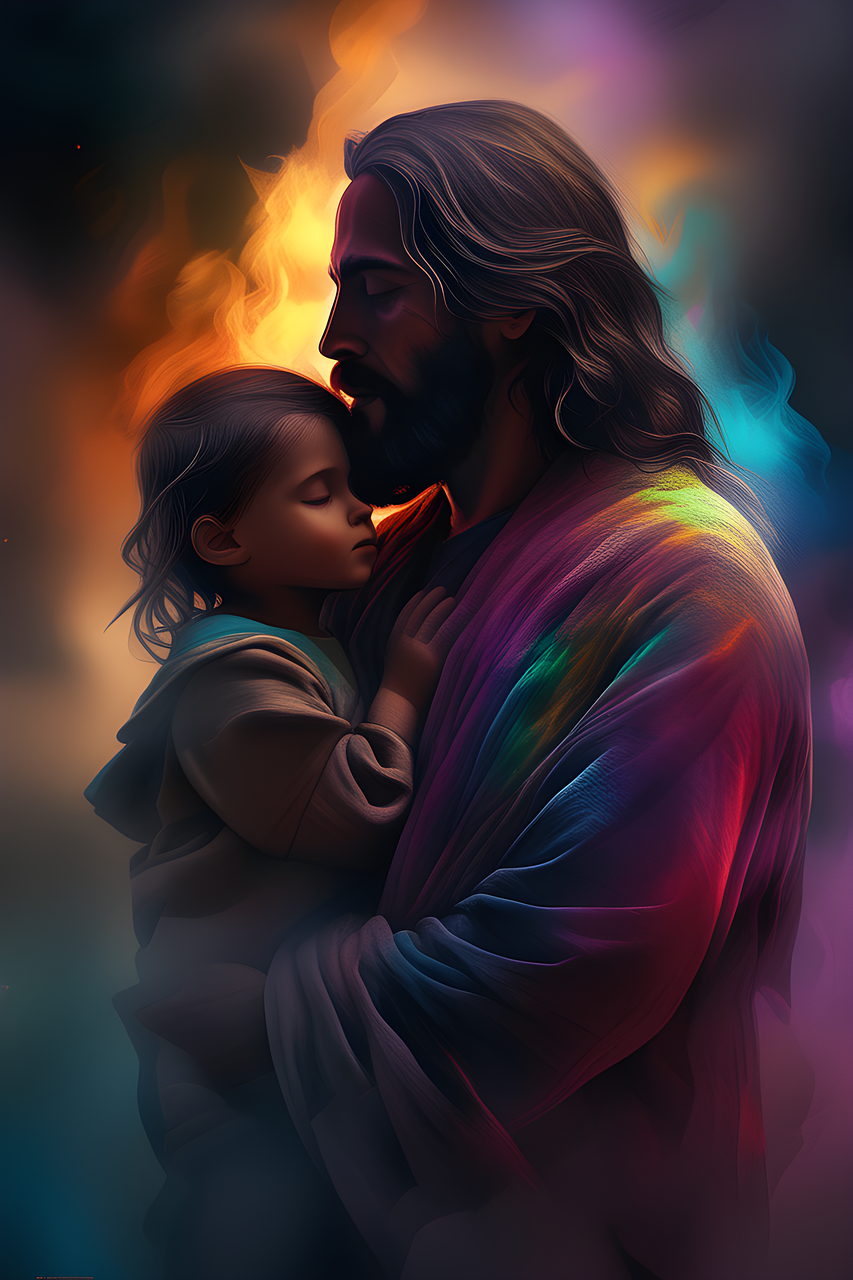Introduction
The Book of Isaiah is known for its prophecies, and Chapter 19 is no exception. It provides a glimpse into the future, offering hope and reassurance to the people of Israel and Egypt. Through this chapter, we gain insight into God’s plan for redemption and the promise of a Messiah who will bring about ultimate restoration.
Isaiah Chapter 19: Overview
Isaiah Chapter 19 is set approximately 150 years before the Assyrian invasion of the northern kingdom of Israel. This chapter contains a prophetic vision that encompasses various significant events and judgments concerning Egypt. The primary themes in Isaiah Chapter 19 include divine judgment, redemption, and the anticipation of a future ruler who will bring restoration and peace.
The chapter opens with a proclamation against Egypt, declaring that the Lord will come to Egypt riding on a swift cloud, bringing judgment upon the land.The vision then unfolds with a description of the devastating consequences that will befall Egypt, including a civil war, economic turmoil, and environmental catastrophes.However, in the midst of this judgment, there is a glimmer of hope as a remnant of Egypt turns to the Lord and cries out for deliverance.
One example that illustrates the main point of Isaiah Chapter 19 is the proclamation of judgment against Egypt. The Lord’s declaration signifies His authority and power over the nation, foreshadowing the upcoming events described in the prophetic vision. This example highlights the central focus of Isaiah Chapter 19, which is the divine judgment and subsequent redemption of Egypt.
Analysis of the Prophetic Vision
The prophetic vision described in Isaiah Chapter 19 involves a future judgment and redemption of Egypt. It portrays a series of events, including a civil war, economic devastation, and an ecological crisis. The drying up of the Nile River symbolizes a significant occurrence within the vision. Moreover, the presence of idols and sorcerers in the vision emphasizes the reason for God’s judgment. The vision also foretells the rule of a cruel master and fierce king over Egypt, bringing further distress to the nation. However, amidst the tribulations, the remnant of Egypt cries out to the Lord and experiences deliverance.
The drying up of the Nile River is a prominent example within the prophetic vision of Isaiah Chapter 19. The Nile River, a lifeline for Egypt, served as a source of water, sustenance, and economic prosperity. The drying up of the Nile signifies the devastation that will befall Egypt and the disruption of their way of life. This example further underscores the severity of the judgment that God will bring upon Egypt and emphasizes the need for divine redemption.
Understanding Divine Redemption in Isaiah Chapter 19
Divine redemption, in the context of Isaiah Chapter 19, refers to the act of God saving and delivering His people. In this chapter, divine redemption is demonstrated through the Savior sent to deliver Egypt. The Egyptians turn to the Lord, offering sacrifices, offerings, and vows. The Lord strikes and heals Egypt, signifying a process of restoration.
An example that exemplifies divine redemption in Isaiah Chapter 19 is the response of the remnant of Egypt to the Lord’s deliverance. Despite the judgment and devastation they have experienced, they turn to the Lord and seek His deliverance. They offer sacrifices, make offerings, and vows, demonstrating their repentance and faith in God. The Lord responds by striking Egypt but also healing them, symbolizing the process of restoration that will take place. This example highlights the concept of divine redemption, where God offers salvation, healing, and restoration to those who turn to Him in faith.
Exploring the Messianic Hope in Isaiah Chapter 19
#Isaiah19 #PropheticVision #DivineRedemption #JesusChrist #MessianicContext #BiblicalProphecy #TrustinGod’sPlan #AssuranceofDivineIntervention #SpiritualAwakening #ContextofProphecy #HopeAmidstTurmoil #Restoration #SpiritualRenewal #FutureDeliverance #SalvationMessage #AnticipationofMessiah #ProphecyFulfillment #PromiseofRedemption #MessianicEra #God’sSovereignty
The Messianic hope in Isaiah Chapter 19 centers around the expectation of a future ruler from the family of David. This ruler is anticipated to fulfill God’s promises, bringing about restoration and peace. The vision includes the unity and peace between Egypt, Assyria, and Israel.Additionally, the concept of a highway connecting Jerusalem, Egypt, and Assyria signifies reconciliation and cooperation. The Messianic hope depicted in Isaiah Chapter 19 is connected to the second coming of Christ.
An example that illustrates the Messianic hope in Isaiah Chapter 19 is the mention of a highway connecting Jerusalem, Egypt, and Assyria. This highway symbolizes the unity and reconciliation that will occur between these nations under the rule of the Messiah. It signifies a time of peace and cooperation, where the divisions and conflicts between these nations will be resolved. This example highlights the hope for a future ruler who will bring about ultimate restoration and peace.
Hezekiah’s Role in Fulfilling the Promise
Hezekiah, a historical figure mentioned in Isaiah Chapter 19, is presented as a potential fulfillment of the promised king. However, he falls short of fully fulfilling the promises, leading to a shift in the promise of the Messiah to a hope for the distant future.
Hezekiah was a righteous king who sought to follow the ways of the Lord. He implemented various reforms and led the people of Judah in worshiping the true God. While he played a significant role in the history of Judah, he was not the ultimate fulfillment of the promised king mentioned in Isaiah Chapter 19. Hezekiah’s reign offered a glimpse of what the future ruler would be like, but it fell short of fully fulfilling the promises. This realization led to a shift in the Messianic hope, with the expectation now directed towards a ruler who would come in the distant future.
The Prophecy in Isaiah 19:25
Isaiah 19:25 contains a prophecy that remains unfulfilled to this day. While the judgment part of the prophecy regarding Egypt has been historically fulfilled through various rulers, the salvation part, including allegiance to Israel’s God and a highway connecting Jerusalem, Egypt, and Assyria, is yet to be realized. Different interpretations exist regarding the future fulfillment of this prophecy. Many believe that the fulfillment of the prophecy awaits the future period of peace brought by the second coming of Christ.
Isaiah 19:25 states, “the Lord Almighty will bless them, saying, ‘Blessed be Egypt my people, Assyria my handiwork, and Israel my inheritance.'” This verse speaks of a future time when Egypt, Assyria, and Israel will all experience the blessings of the Lord. While there have been instances throughout history where Egypt and Assyria have been under the rule of Israel, the complete fulfillment of this prophecy is yet to be realized. The future fulfillment of this prophecy is believed to come during the period of peace brought about by the second coming of Christ, where all nations will experience the blessings and favor of the Lord.
Egypt, Assyria, and Israel in the Prophecy
The prophecy in Isaiah Chapter 19 mentions peace, trade, and blessings between Egypt, Assyria, and Israel. Egypt and Assyria are depicted as uniting and serving the King of Israel.
The vision in Isaiah Chapter 19 paints a picture of unity and cooperation between Egypt, Assyria, and Israel. The enmity and conflicts that have existed between these nations will be replaced with peace and harmony. They will come together and serve the King of Israel, acknowledging His authority and rule. This prophecy highlights the future restoration and reconciliation that will take place among these nations under the leadership of the Messiah.
Historical Fulfillment and Future Fulfillment
Certain aspects of Isaiah Chapter 19 have been historically fulfilled, particularly concerning Egypt’s judgments. However, the grand vision of peace for all nations described in Isaiah 2:1-4 is yet to be realized. The future fulfillment of the prophecy is believed to come through the second coming of Christ. The Lord making Himself known to the Egyptians implies a future fulfillment.
Throughout history, Egypt has experienced various judgments and rulers as prophesied in Isaiah Chapter 19. These fulfillments serve as evidence of the reliability and accuracy of the prophecy. However, the complete fulfillment of the vision, including the peace and unity among all nations, is yet to be realized. The future fulfillment is anticipated to occur through the second coming of Christ, where all nations will experience the fullness of God’s redemption and restoration.
Conclusion
Isaiah Chapter 19 holds significant theological and eschatological implications in relation to divine redemption and the Messianic hope. Through the prophetic vision, divine redemption is portrayed, and the anticipation of a future ruler from the family of David is explored. While certain aspects of the prophecy have been historically fulfilled, the complete fulfillment awaits the future period of peace brought by the second coming of Christ. Isaiah Chapter 19 serves as a testament to the ongoing anticipation for the fulfillment of God’s promises and the ultimate restoration of all nations. The vision presented in Isaiah Chapter 19 offers hope and reassurance to believers, reminding them of God’s redemptive plan and His faithfulness to His promises throughout history.



